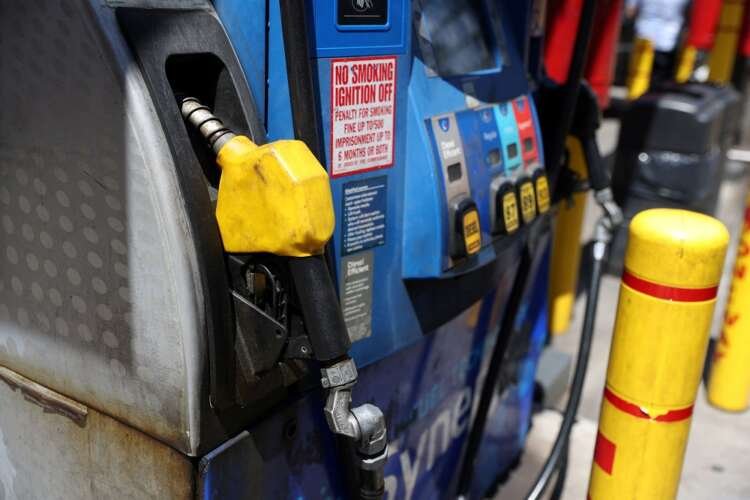Oil rises on weaker dollar and supply concerns
Published by Jessica Weisman-Pitts
Posted on October 25, 2022
2 min readLast updated: February 3, 2026

Published by Jessica Weisman-Pitts
Posted on October 25, 2022
2 min readLast updated: February 3, 2026

By Rowena Edwards
LONDON (Reuters) -Oil prices rose on Tuesday after falling by more than $1 a barrel earlier in the session, bouyed by a weaker dollar and supply concerns highlighted by Saudi Arabia’s energy minister.
Benchmark Brent crude futures rose by 40 cents to $93.66 a barrel by 1348 GMT while U.S. West Texas Intermediate crude futures for December delivery rose by 70 cents to $85.28.
The U.S. dollar index fell during afternoon trade, making dollar-denominated oil less expensive for other currency holders and helping to push prices higher.
Further support came from comments by Saudi energy minister Prince Abdulaziz bin Salman that energy stocks were being used as a mechanism to manipulate markets.
“It is my duty to make clear that losing emergency stocks may be painful in the months to come,” he told the Future Initiative Investment (FII) conference in Riyadh.
Running out of production capacity has a great cost, the minister added.
Supply and demand fundamentals remain largely stable, leaving economic sentiment centre stage for the oil market, said Vandana Hari, founder of oil market analysis provider Vanda Insights.
“Much of the souring outlook on demand has already been baked in, so any further downward pressure may be slow-acting,” she said.
Oil fell by more than $1 a barrel earlier in the day on signs of uncertain economic activity in the United States and China, the world’s two biggest oil consumers.
Government data on Monday showed China’s crude oil imports in September were 2% lower than a year earlier while business activity contracted in the euro zone, the United Kingdom and the United States in October.
Goldman Sachs CEO David Solomon said on Tuesday that he believes a U.S. recession is “most likely”, while a recession could be occurring in Europe.
The U.S. Federal Reserve could raise interest rates beyond 4.5-4.75% if it does not see real changes in behaviour, he said at the FII conference.
U.S. crude oil inventories are expected to rise this week, which could limit price gains. Analysts polled by Reuters estimated on average that crude inventories rose by 200,000 barrels in the week to Oct. 21.
(Reporting by Rowena EdwardsAdditional reporting by Mohi NarayanEditing by Kirsten Donovan and David Goodman)
Brent crude oil is a major trading classification of crude oil originating from the North Sea. It serves as a benchmark for oil prices globally and is used to price two-thirds of the world's crude oil.
The U.S. dollar index measures the value of the U.S. dollar relative to a basket of foreign currencies. It is used to gauge the dollar's strength and is an important indicator in the foreign exchange market.
Crude oil inventories refer to the amount of crude oil stored in tanks and facilities. They are monitored as an indicator of supply and demand dynamics in the oil market, affecting oil prices.
Economic sentiment reflects the overall attitude of consumers and businesses regarding the economic environment. It influences spending and investment decisions, impacting economic growth and financial markets.
A recession is a significant decline in economic activity across the economy that lasts for an extended period, typically visible in GDP, income, employment, manufacturing, and retail sales.
Explore more articles in the Investing category











